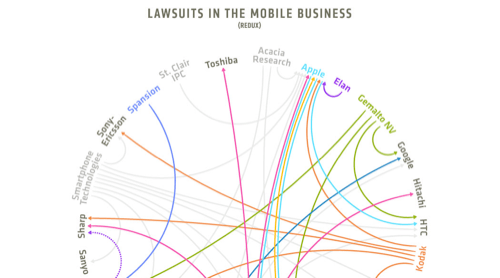
Google’s pledge to back open patents is a typically Google gesture: an elegant combination of genuine altruism, PR spin and protecting its own self-interests.
Thursday morning, Google outlined the Open Patent Non-Assertion Pledge, which boils down to one statement: “we pledge not to sue any user, distributor or developer of open-source software on specified patents, unless first attacked,” the company said.
Google said that it would place ten patents under the aegis of the OPN, all tied to MapReduce and designed to minimize the computing power of large data sets. Google has previously made those technologies available to developers; the most high-profile example of the MapReduce library is Hadoop, designed to run applications across large collections of low-cost, commodity hardware.
Hadoop is licensed using the Apache v2 license, which allows for the modification and distribution of contributed code, without royalty. However, the license applies just to a specific project; the OPN pledge applies to any software, past present or future, that might use those patents. Google also said that the pledge remains in force even if the patents are transferred, which will presumably be apart of the licensing restrictions that are applied if the patents are sold or licensed to another party.
But the key component of the pledge is this one: “The Pledge may be terminated, but only if a party brings a patent suit against Google products or services, or is directly profiting from such litigation,” Google said.
He Hit Me First
So far, the patents that Google included under the pledge are fairly innocuous: there’s simply no way that Google would ever try to enforce its MapReduce patents, not when Hadoop has become such a critical component within the enterprise.
Over time, Google said, the company intends to expand the patents covered by the OPN pledge to other technologies, and it’s here that Google lays the foundation for a future opportunity.
Two of Google’s most important products are based upon technology that Google open sourced: Google’s Chrome browser and Android. Chrome, based on the Chromium Project, covers both the browser as well as the foundations of Chrome OS. Google’s mobile operating system, Android, was also founded as an open source project, and its pervasiveness as both an OS for phones and tablets – as well as forks like the Amazon Kindle – is based upon Google’s choice of license.
But, over time, Google has been sued by Apple, British Telecom, Microsoft and Oracle, among others, who have claimed that the company’s Android patents infringe their own.
If Google were to place its key Android patents under the “protection” of the OPN, the company would be able to paint Microsoft and others as bullies. Look, Google would be able to say, we gave the world MapReduce, which is the basis for the Hadoop technology you use to run SkyDrive, Microsoft – and your iCloud, Apple. How can you turn around and sue us over Android? It’s not clear whether Google’s pledge applies on a patent-by-patent basis, so that a suit contesting one patent under the pledge would allow Google – from a public relations standpoint, if not a “legal” one. And this all assumes that Google will take some of its more controversial patents and place them under the OPN, as well.
Google is keenly aware of the disgust the software community has for patents, and the sort of restrictive lawsuits that not only tie up potential progress, but also force developers and researchers to constantly protect their innovations. Open-source licenses are a great relief: developers can simply develop, sharing their knowledge and improving their lot as a whole.
In keeping with this, Google has elevated the bar for corporate behavior. You can argue that the open-source movement embodied Google’s “don’t be evil” mantra before Google did. (Linus Torvalds released Linux in 1991, seven years before Google was incorporated.) This is the Google of the self-driving car and Google Glass, innovating for all.
And there is something to applaud here. It’s just that Google is looking out for its own self interest, too.

















